Emergency Dentist Cambridge
Trusted, Timely Responses for Dental Emergencies
Harbor Dental Center is your go-to practice for top-notch emergency dental services in Cambridge. Our highly trained and experienced staff, led by Dr. Meredith Todd, excel at providing long-term and straightforward solutions. Our compassion, empathy, and honesty mean we can provide customized treatment plans for every dental emergency. We offer same-day appointments when appropriate and a convenient voicemail service for after-hours inquiries. If your emergency does not require immediate interception, we'll schedule an early morning consultation the next business day. Our Cambridge dental emergency protocols also apply on weekends to the communities of Trappe and Linkwood. Please contact us today for a comprehensive evaluation and treatment!
Why Choose Harbor Dental Center for Emergency Dentistry?
- Same-Day Appointments
- Sedation for Soothing Dental Fears
- Convenient Financing Options Available
How We Treat Dental Emergencies

- Same-Day Appointment: We’ll see you as soon as we can whenever you’re in need of urgent dental care. Until you can get to our office, be sure to follow any tips our team gives you for keeping your pain under control and avoiding further damage.
- Emergency Exam: We’ll need to figure out what’s causing your emergency and how serious it is. As such, we’ll have to thoroughly examine your teeth, and it will often be necessary to take X-rays as well.
- Review Findings: Upon identifying the source of the problem, we can start exploring your treatment options. We will work with you to put together a plan that will help you find lasting relief.
- Get the Care You Need: Our team will carry out the steps of your emergency treatment plan (which could include root canal treatment, dental crown placement, tooth extraction, and other procedures depending on the circumstances) and help you regain a healthy grin.
The Most Common Dental Emergencies
It’s vital to be able to recognize when a situation calls for an emergency dental appointment. If you check below, you’ll find examples of urgent dental health issues that our team can offer solutions for. Don’t be afraid to call us if you’re not sure whether a situation counts as an emergency; we’ll help you figure out what the right steps to take in your case are.
Understanding the Cost of Emergency Dentistry
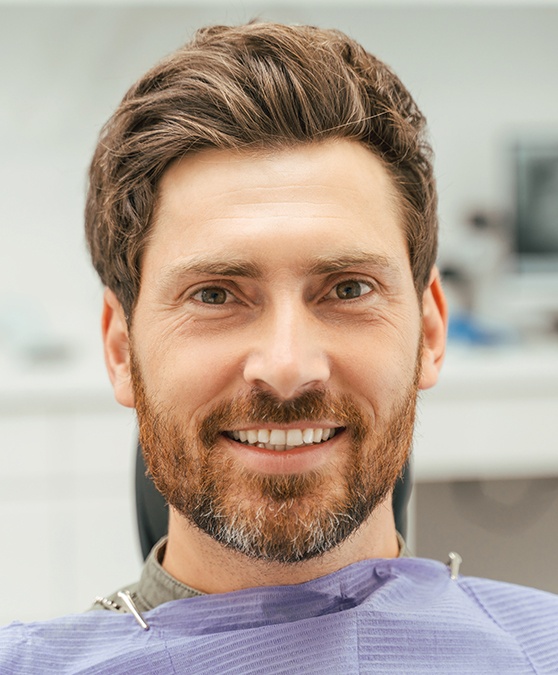
While you will naturally want to know how much emergency dental care will cost as soon as possible, we can only provide an estimate after we have had the opportunity to complete an exam. With that said, you don’t have to worry – we will be transparent about the costs involved, and we will walk you through your financial options to ensure that you’re able to get the treatment you deserve without straining your bank account. Plus, if you want to learn more on the topic in the meantime, you can read on!
Why Every Dental Emergency is Different
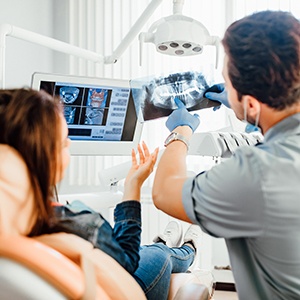
Once you arrive at our Cambridge office, your dentist will alleviate any pain you’re feeling and complete a comprehensive oral exam. Once they have identified the source of the problem as well as the extent of the damage, they can review your treatment options and provide you with an estimate of the price. As we mentioned above, our team will also review the financial solutions available, including dental insurance.
Does Dental Insurance Cover Dental Emergencies?

Fortunately, many dental insurance providers do cover a portion of the cost, like the exam. So, if you are insured, it’s worth reading through the fine print on your plan. That way, you know exactly what is and isn’t covered when a dental emergency strikes.
With all of that said, our team is here to make the treatment process easy. So, if you need any assistance with maximizing your benefits, don’t hesitate to provide us with your membership information. We’ll take it from there!
Other Options for Making Dental Emergencies Affordable
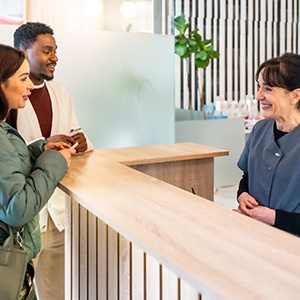
If you don’t have dental insurance, ask us about the other financial solutions available, like:
- Our In-House Dental Savings Plan – When you join, you get a sizeable discount on treatments completed at our office (without waiting periods, yearly maximums, and other red tape too!).
- CareCredit Flexible Financing – With CareCredit’s payment plans, you don’t have to pay for the entire cost of your care in one lump sum.
- Our Special Offers – Our promotions help you save on everything from preventive care to emergency treatments. Don’t hesitate to ask us about our current offers!
How Taking Care Of Your Smile Can Save You Money

From small cavities to severely cracked teeth, many dental injuries are largely preventable. As a result, healthy habits can save you money! If you’re not sure where to start, consider your at-home dental care regimen. In addition to brushing and flossing consistently, you should use an ADA-approved mouthwash to rinse daily. Outside of that, focus on protecting your smile from harm, like not chewing on ice cubes and wearing a mouthguard during sports.
Important note: Many dental problems are largely preventable in the early stages. So, if you have a suspicion that something is wrong – whether it’s because your gums are bleeding or it hurts to chew – call us ASAP to schedule an appointment.
Keys to Preventing Dental Emergencies

Unfortunately, serious dental injuries can happen in an instant. If you find yourself in this situation, don’t worry – you can count on our Cambridge emergency dentist. As your dental team, we’re also here to help keep your smile in tip-top shape throughout the years. With this in mind, keep reading to learn a few habits we recommend adopting in an effort to prevent dental emergencies.
Visit Your Dentist Twice a Year
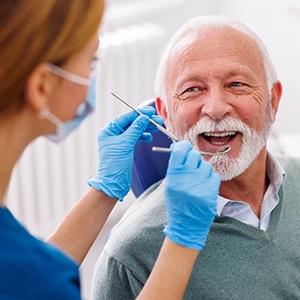
Every six months, you should come to our office for a dental checkup and cleaning. This is crucial because these periodic visits ensure that tooth decay, gum disease, damaged restorations, and the like are caught as early as possible, preventing a serious dental injury in the process.
Note: If you’re prone to cavities or if we’re in the process of managing gum disease, then we may ask you to come in every three months instead. You also shouldn’t hesitate to schedule an appointment with us if you’re experiencing abnormal dental symptoms, like pain when biting down.
Commit to a Solid Oral Hygiene Regimen

A solid oral hygiene regimen is crucial when it comes to preventing common dental problems like tooth decay. So if you don’t already have a solid dental care routine in place, now is the time to make that a priority! That starts with using fluoridated toothpaste and a toothbrush to brush your teeth each morning and evening. Additionally, you should rinse with mouthwash and floss daily. That way, food particles, plaque, and other debris aren’t left to linger on your teeth.
Eat Plenty of Nutrient-Dense Foods

Nutrient-dense foods, like whole apples and raw carrots, benefit your oral and overall health. For that reason, we strongly recommend maintaining a well-balanced diet that’s packed with essential vitamins, minerals, and nutrients. We also recommend keeping your consumption of added sugar to a minimum. After all, this sweetener is one of the leading causes of cavities!
Wear a Mouthguard During Sports

There’s a common misconception that you only need to wear a mouthguard during contact sports, like football. That’s not the case! In an effort to protect the teeth and gums from harm, patients who participate in non-contact sports like running, rollerblading, and track are also encouraged to wear one.
Tip: If you don’t have a mouthguard, reach out to us! We can have a custom one made, ensuring it fits perfectly while also protecting your teeth properly.
Quit Unhealthy Dental Habits

Do you bite your nails when you’re bored or nervous? Do you use your teeth to tear into plastic wrapping instead of grabbing the scissors? Do you bite on ice cubes while drinking water? If so, it’s time to stop! Although these habits may seem harmless, they can lead to a serious dental injury, like a chipped or fractured tooth.
Root Canal Treatment
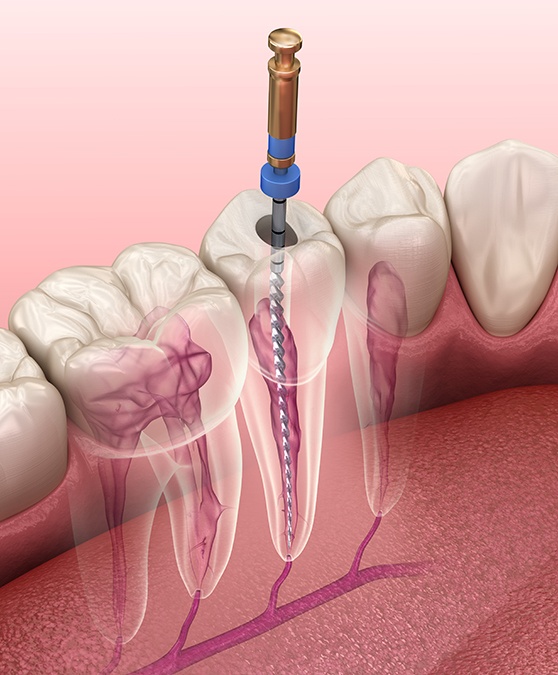
Root canal treatment (RCT) is a procedure that saves your tooth by eliminating bacterial infection and preventing re-infection. We first create an access hole in the crown of the affected tooth.
Then we remove the infected pulp inside the canal and clean it with irrigation solutions and specialized tools. Once dry, we'll fill the canal with bacteria-fighting gutta-percha, then seal it with adhesive material. The final step involves fitting a dental crown after allowing it to heal. This procedure gives your new tooth a natural appearance and functionality.
You may need root canal treatment if you experience the following symptoms:
- Lingering tooth sensitivity to hot or cold food and drinks
- Inflamed, swollen, or bleeding gums
- Acute pain when you bite, chew, or put slight pressure on the affected tooth
- Chipped, cracked, or broken teeth
- Tooth discoloration
- Tooth mobility, which feels like your tooth is loose
Tooth Extractions
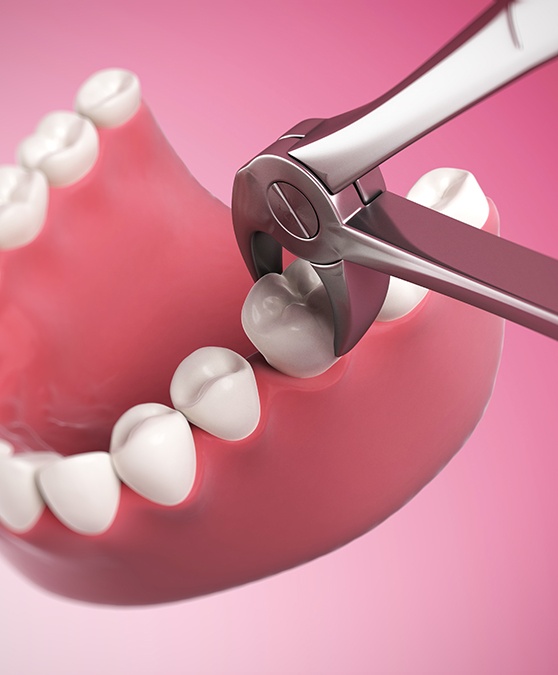
When necessary, we perform tooth extractions as a last resort. We may remove extensively damaged or impacted teeth. The treatment could also be needed after an accident. Before the procedure, our team conducts an overview of your medical history and current health. It's crucial to inform Dr. Todd if you have diabetes, liver disease, hypertension, heart problems, renal disease, or a compromised immune system. This information helps us take the utmost precautions while performing on our Cambridge dental emergency patients.
Dental Emergency FAQs
How Can a Dental Abscess Be Treated?
As you may already know, you should never attempt to pop a dental abscess on your own. Instead, you should get in touch with our Cambridge dental team right away to schedule an emergency appointment. After one of our talented, experienced, and caring dentists has completed a comprehensive oral exam, they can determine the best way to restore your healthy, pain-free smile. Usually, that involves carefully opening and draining the abscess, but there are some cases when antibiotics and root canal treatment are necessary as well.
How Long Can a Tooth Last After It Has Been Knocked Out of Your Mouth?
After about 15 minutes of being knocked out, the tooth starts to die. That’s why it’s so important that you act fast! In addition to placing the tooth back in its socket or in a clean container filled with milk, we recommend calling to schedule an emergency appointment. Together, these two steps will give us the highest chances of being able to save your tooth.
Are Swollen Gums an Emergency?
Swollen gums are a common symptom of gum disease, so it definitely shouldn’t be ignored. When you call to schedule an appointment, a helpful member of our team will learn more about your symptoms, including how long you’ve been experiencing them and if they are affecting your ability to chew. From there, they can determine how urgent the situation is and if a same-day visit is necessary.
Should I Visit the Emergency Room First for Dental Emergencies?
If you are bleeding uncontrollably, your jaw is fractured, or you’re experiencing any other potentially life-threatening symptoms, you should head to the ER immediately. Once you receive the necessary medical attention, schedule a same-day appointment with one of our emergency dentists in Cambridge so they can restore your healthy, beautiful smile as well.
What Can and Can’t You Eat with a Chipped or Cracked Tooth?
If you’ve chipped one of your teeth, but you still have a day or two until your appointment with us, you might be wondering what you can and can’t eat. It goes without saying that you should avoid crunchy foods, like hard candies and raw almonds, since they can damage your tooth further. Instead, stick to vegetable soups, seedless fruit smoothies, cottage cheese, and other extremely soft foods.
Tip: Always check the temperature first since hot/cold foods and drinks can exacerbate your symptoms!
Is It Safe to Use A Toothpick?
Since wooden ones can break into smaller pieces, the sharp edge can irritate your gums, and accidentally swallowing a toothpick can be deadly, we don’t recommend using them. If you have something stuck between your teeth, use floss to dislodge the debris instead. If that doesn’t work, try rinsing with warm saltwater as well.
Preventive Dentistry Restorative Dentistry Dental Implants Cosmetic Dentistry Sedation Dentistry Sleep Apnea Treatment TMJ Treatment Children's Dentistry View Our Services
